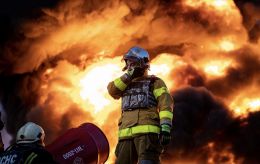Hostages of blockade. Why Poles do not allow trucks to enter Ukraine and who benefits from it
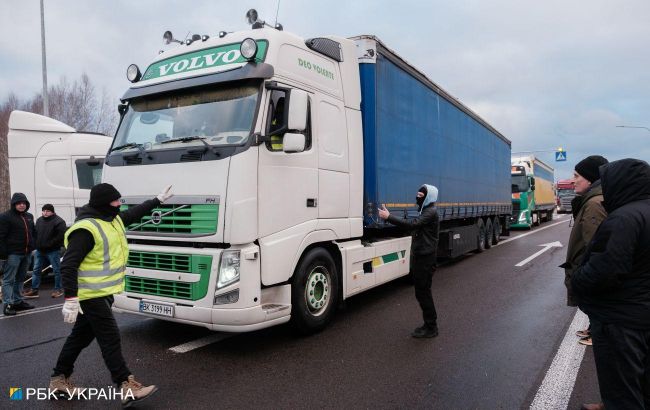 Ukraine's border with Poland, where Ukrainian trucks are stuck (Photo: Vitalii Nosach/RBC-Ukraine)
Ukraine's border with Poland, where Ukrainian trucks are stuck (Photo: Vitalii Nosach/RBC-Ukraine)
Three thousand trucks are stuck at the border of Poland and Ukraine due to the protest by Polish carriers. They demand the cancellation of the "transport visa-free" for Ukrainians and the restoration of permits for the transportation of goods. In a report by RBC-Ukraine find out how these protests affect the economy of Ukraine, how thousands of drivers live on the border, and in whose interests the Poles organized the blockade of goods.
The full-scale invasion by Russia temporarily cut off Ukraine from sea routes through which Ukrainian carriers sent and received thousands of cargo. Land borders became the only opportunity to continue trade with Europe. Even before the major war in 2021, Poland was one of the largest trading partners for Ukraine, regularly receiving and passing thousands of trucks carrying various goods at the Polish-Ukrainian border.
Since the beginning of the war, the European Union has decided to liberalize freight traffic between EU countries and Ukraine. This means that Ukrainian carriers no longer needed permits to transport a certain amount of cargo. Almost two years after the start of the invasion, Polish companies claimed that the "transport visa-free" led to "excessive competition" in the market. On November 6, they received permission from local authorities to hold rallies, the essence of which boiled down to one thing—they blocked four checkpoints on the Polish-Ukrainian border. They announced that they would end the strike only when the EU reintroduces transportation permits.
With their actions, the protesters took several thousand people hostage. Today, over three thousand trucks are stuck at the Polish border. Drivers cannot leave the cargo and are forced to live in trucks. Volunteers and Ukrainian delegations regularly visit them. The delegations explained to the protesters that cargo permits are not within Ukraine's competence. However, the protesters are not interested in this.
At the border
We approach the border with Poland and see a large, brightly yellow overhead structure, stylistically reminiscent of Soviet postmodernism. The checkpoint Yahodyn-Dorohusk, recently one of the largest gateways for freight transport, is now empty and looks strange. Our documents are checked, stamps about departure are placed, and we cross the border. The Consul General of Ukraine in Lublin, Oleh Kuts, accompanies us.
"We will now pass by our trucks – they have gathered about 20 kilometers under Khelm. We will approach the protesters later; first, we'll visit the drivers," he says.
Passing by a small group of people in orange vests – these are Polish carriers who have gone on an indefinite strike. The police protect them – law enforcement officers must comply with the protesters' demands and not let the trucks pass. However, later, neither the police nor the carriers can explain who gives orders to stop a particular cargo.
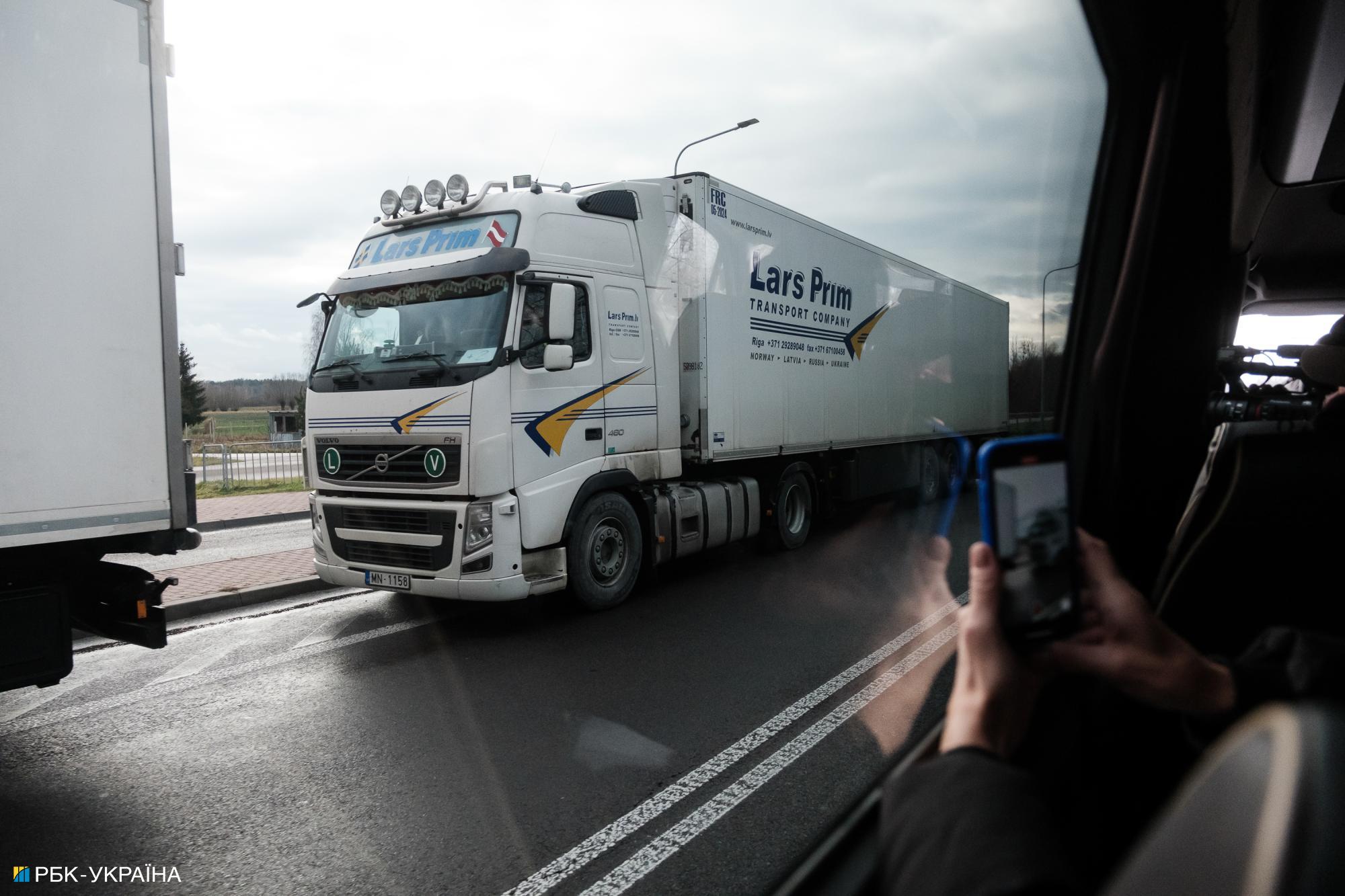
Trucks stand along the road in a long, uneven row. As we drive, it seems that this line of trucks is endless. Almost all cabins are empty – drivers in orange and yellow vests gather at different points, near gas stations or rest areas, smoke, and watch our vehicles pass.
We stop near a gas station where trucks have formed something resembling a semi-circle. Polish journalists and drivers are already waiting for the Ukrainian delegation there. They gather in a large group, anticipating what they will be told this time. Many of them have been here since November 3, and any news is crucial for them. Journalists set up cameras and microphones, and Deputy Minister of Infrastructure Serhiy Derkach stepped forward.
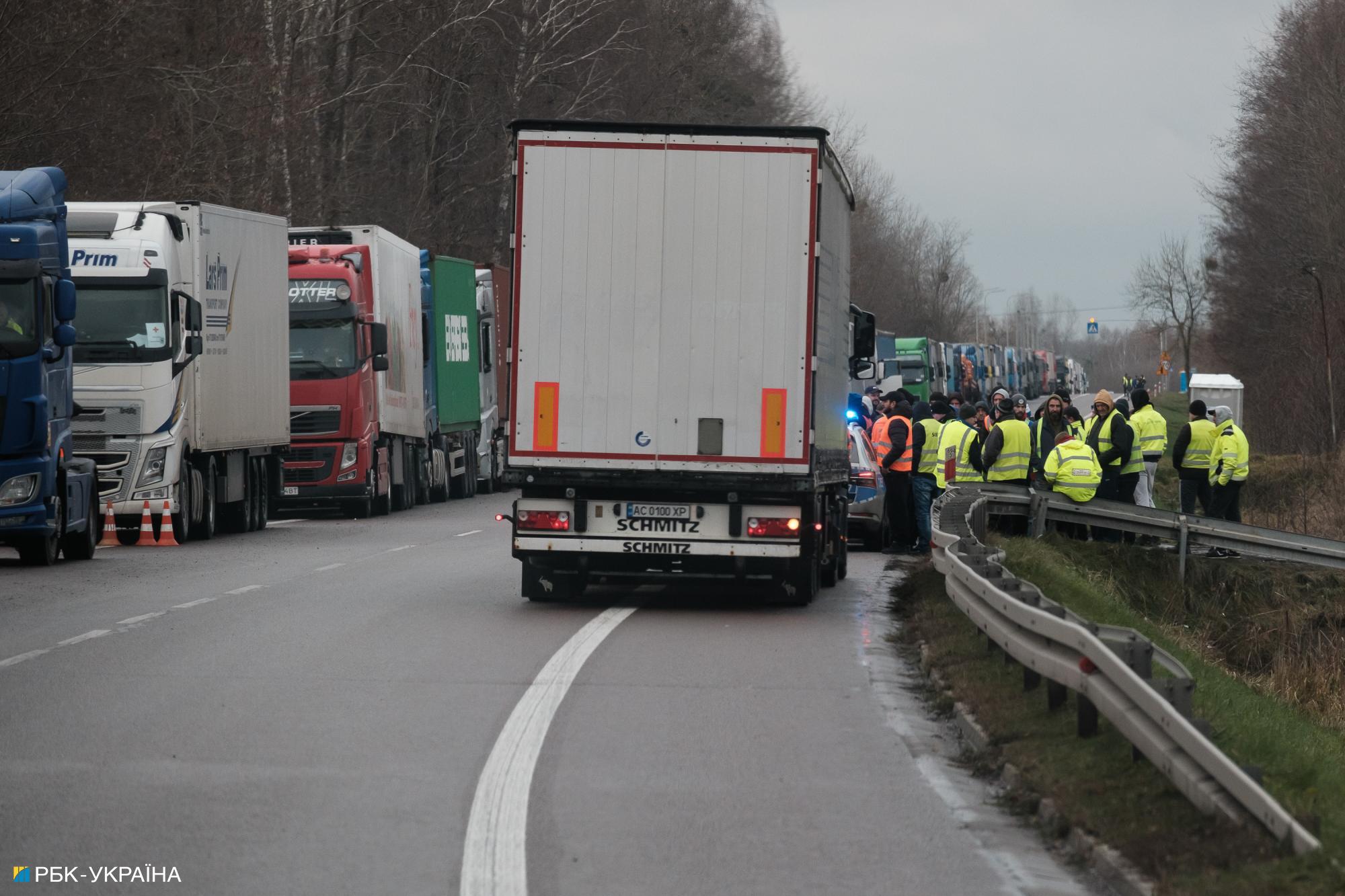
"Today, we brought a small humanitarian aid – water, food. I understand that this is not what you wanted to see today. You wanted to see the Ukrainian border and be at home," the official acknowledges.
The drivers listen attentively, occasionally nodding to each other. Derkach talks about the opportunity to evacuate those who want to go home. Those willing can legally cross the border but must leave the truck here, near Khelm. Few want to abandon their cargo, even in paid parking lots that guarantee the preservation of the goods.
The strike causes significant losses not only to Ukraine but also to Poland, says the deputy minister. Polish carriers also want to import goods to us but cannot, at least not in the former quantity. Moreover, among the trucks are those carrying dangerous cargo and humanitarian and military aid. Ukraine receives energy resources through Poland, which are especially necessary on the eve of winter. The protesters promised to let them through without waiting in line, but the trucks stood before the border like the rest.
"We are surprised by the position of the local authorities, which, knowing about the violations, continue to issue permits for the protest. We have become hostages of a small group of protesters and Polish colleagues from the local government and the government. Why hostages? Because the only condition of the protesters is the cancellation of liberalization and a return to permits," explains Serhiy Derkach.
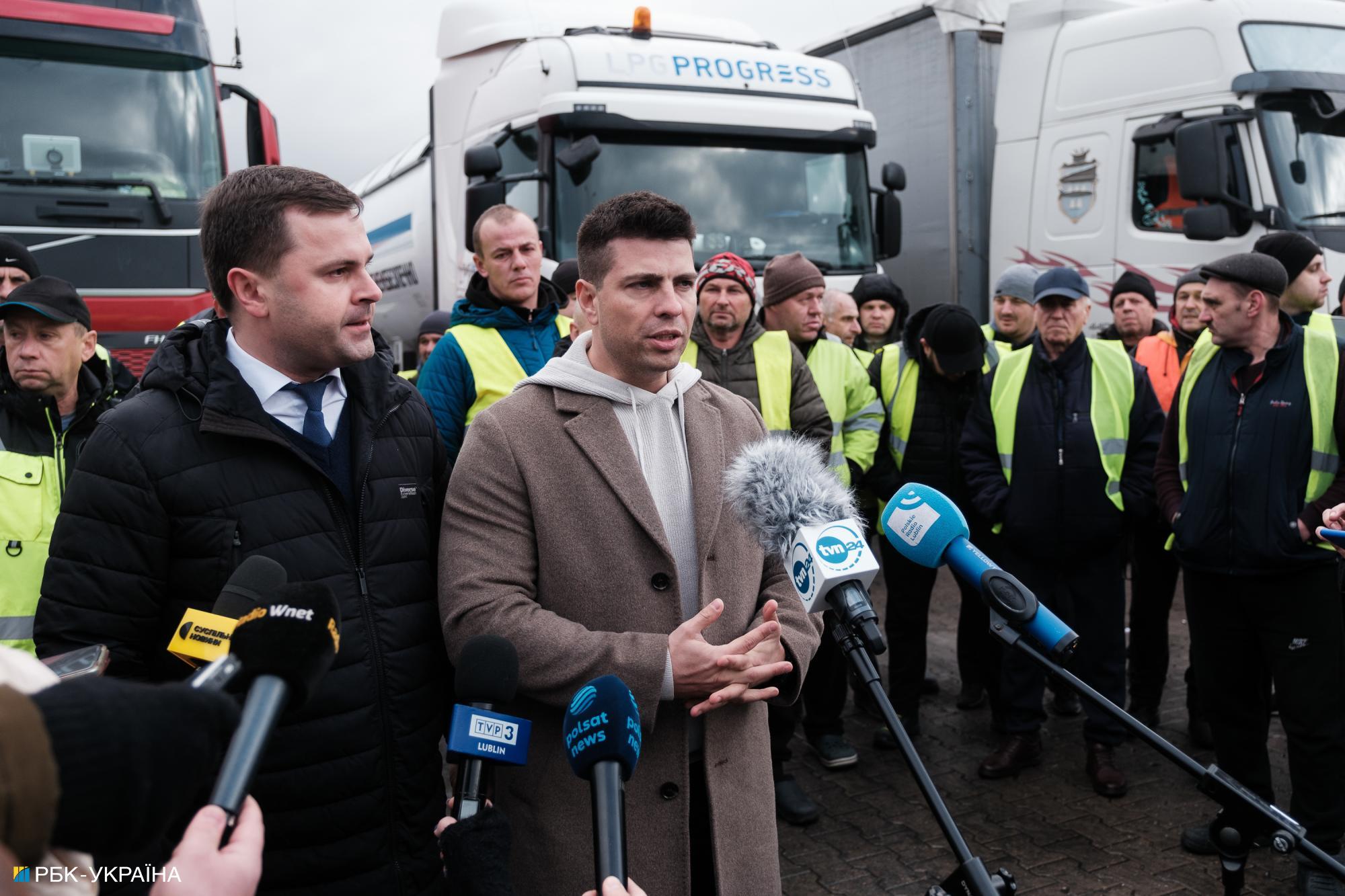
The liberalization agreement was enacted at the beginning of the war and is supposed to be valid until June 30, 2024. It was signed between Ukraine and the EU, so neither the Polish nor Ukrainian governments can cancel it alone.
"The protesters are well aware of this. Therefore, it seems this protest is aimed at simply physically blocking the border," says the deputy minister confidently.
After the impromptu briefing, Derkach addresses the drivers: "I know this doesn't make it any easier for you." And essentially repeats what he said before. The men listen calmly at first until one of the drivers begins to speak.
"Not only do they not allow humanitarian aid. A truck with ADR (dangerous cargo) on Polish plates is coming from that side, they don't even ask for documents. 'Mister, you may pass!' Our ADR is being unfolded to the end of the line. The same with the 'fast lane'!" the driver complains.
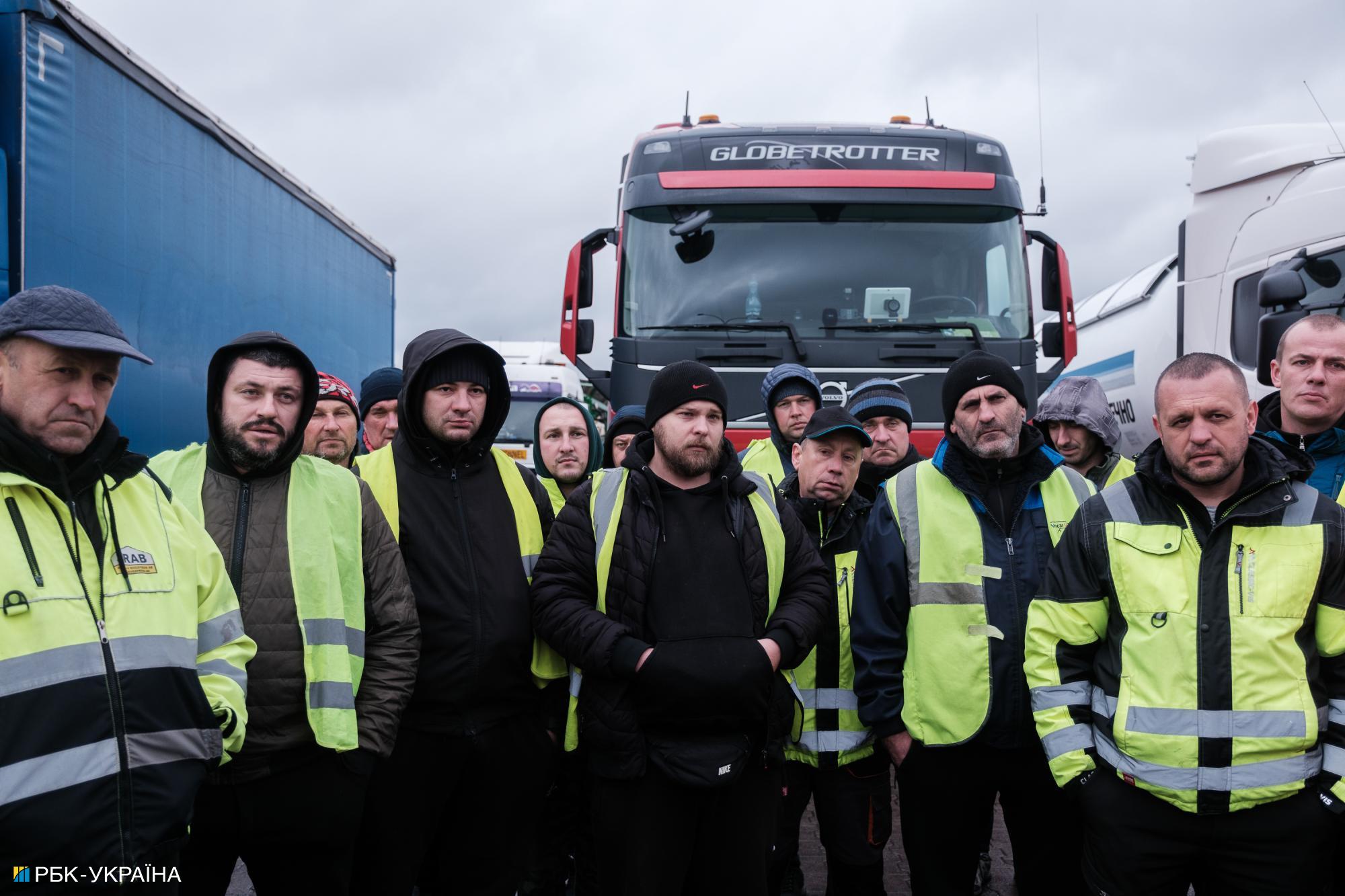
Others agree with him and discuss among themselves, recalling similar cases. While we stand, it gets colder, and wet snow begins to fall, but the men don't notice – they want to express themselves.
"There was a strike in Ukraine, too. We blocked Kyiv! We know how to talk to our leadership. Let them deal with their side!" echoes from the crowd.
The voices get louder; drivers interrupt each other and tell about what they have seen here for three weeks. "Listen, even Polish carriers despise them. These are hucksters. They used to go to Belarus and Russia. They fueled up, came here with full tanks, and they cut prices for them. They joined the EU, but Germany did not introduce permits for them. So they undercut transportation from France, you know yourself, they undercut all of Europe!" says one of the men.
Many drivers have worked in this field for decades – they know the nuances well, who works for whom, and why the roads are blocked today. "These are five companies that are part of the association. They can't compete with us, so they want to seize the Ukrainian market by force." One of the drivers nods and tells the man standing nearby that the carriers' companies are Russian. They fall silent when they both see that their conversation is attracting interest.
"So these five companies have connections to Russia?"
"Well, everything is clear here. Nothing to explain."
Derkach talks to the drivers until a car arrives with groceries. The men are handed packages with soup, bread, and buns with water. Not everyone takes them; many walk away, light up cigarettes, and observe the process. When asked why not everyone goes for food, one of the drivers shrugs and smiles.
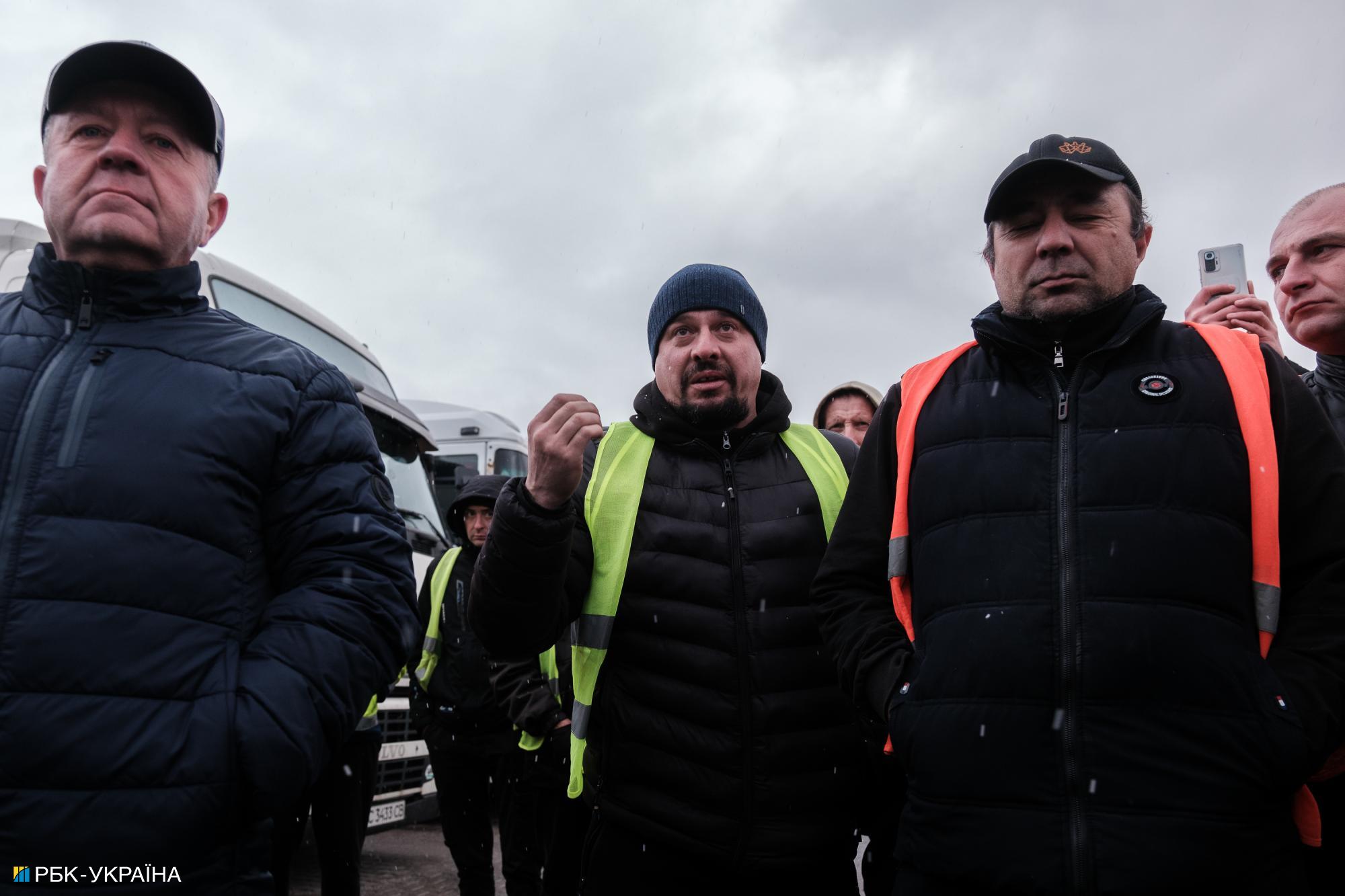
"We went to the store and bought it ourselves. Let those who don't have take it, why do we need extra?"
The drivers are willing to talk, but they visibly become uneasy upon seeing a recorder or camera. "It's not that I can speak well," says the man who agrees to show his cabin. In the cabin of his truck, there is a small space behind the seats for sleeping. He takes a green basin from the upper shelf above the sleeping area, which he calls a washing machine, and points to soap and a blanket. "Well, in general, we're living," he concludes.
Mobile toilets are lined along the road, but there are not enough. Besides that, there is nothing else for the drivers. They have lunch with what they buy at gas stations or the "Biedronka" supermarket. Volunteers, both Ukrainian and Polish, also feed them. Men bathe by pouring water from canisters on themselves and cook on portable stoves. Living under such conditions for a week is quite challenging. It is even harder not to understand how much time they need to live in such conditions.
Valentyn is one of those who agrees to evacuate. He needs to go home and finish his studies. "He's a professor!" his colleagues say about him, laughing.
"We're tired morally. Not so much physically as morally. Everyone has some problems at home, personal issues, families. We are all human. I have my plans. Working as a long-haul trucker, I am a student. I study, though it's part-time; I need to pass exams," explains the man.
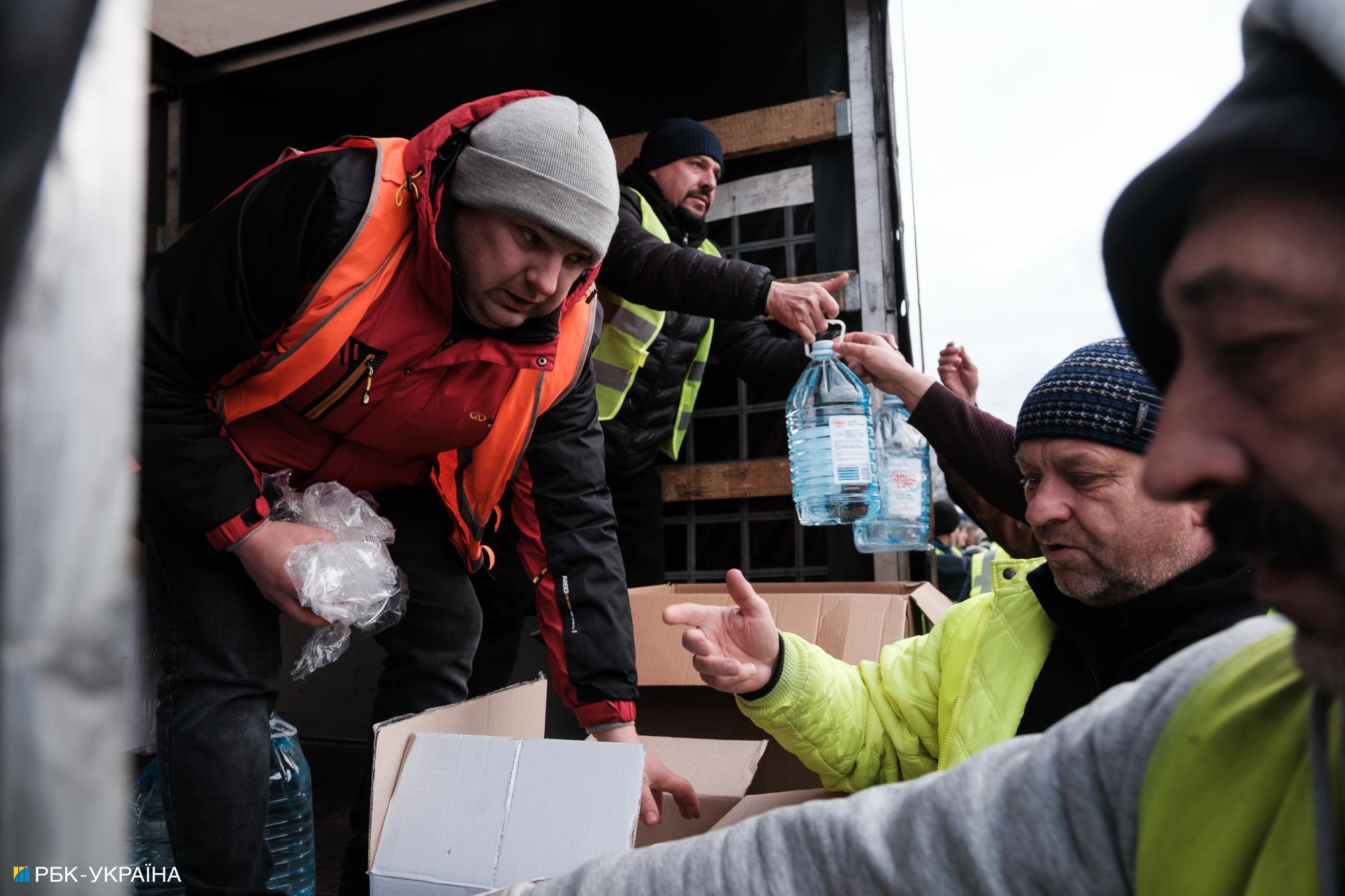
Valentyn left his cargo in a paid parking lot if no other solution was found. Judging by the drivers' reactions, it becomes clear that not all their employers can afford this, and leaving the truck with the load in line is not an option.
Despite the deadlock of their situation, the men constantly joke. The visit of the Ukrainian delegation brought diversity to their daily routine, which is 90% waiting and uncertainty. The drivers talk about their families, laugh, liken themselves to sailors on a long voyage, and, relaxing a bit without cameras, invite for a barbecue.
"We marinated the meat here; it should turn out very tasty. We keep it in mineral water with onions," says a young guy, rubbing his hands. Then he turns to us and adds more seriously, "We rely on you. We are very tired."
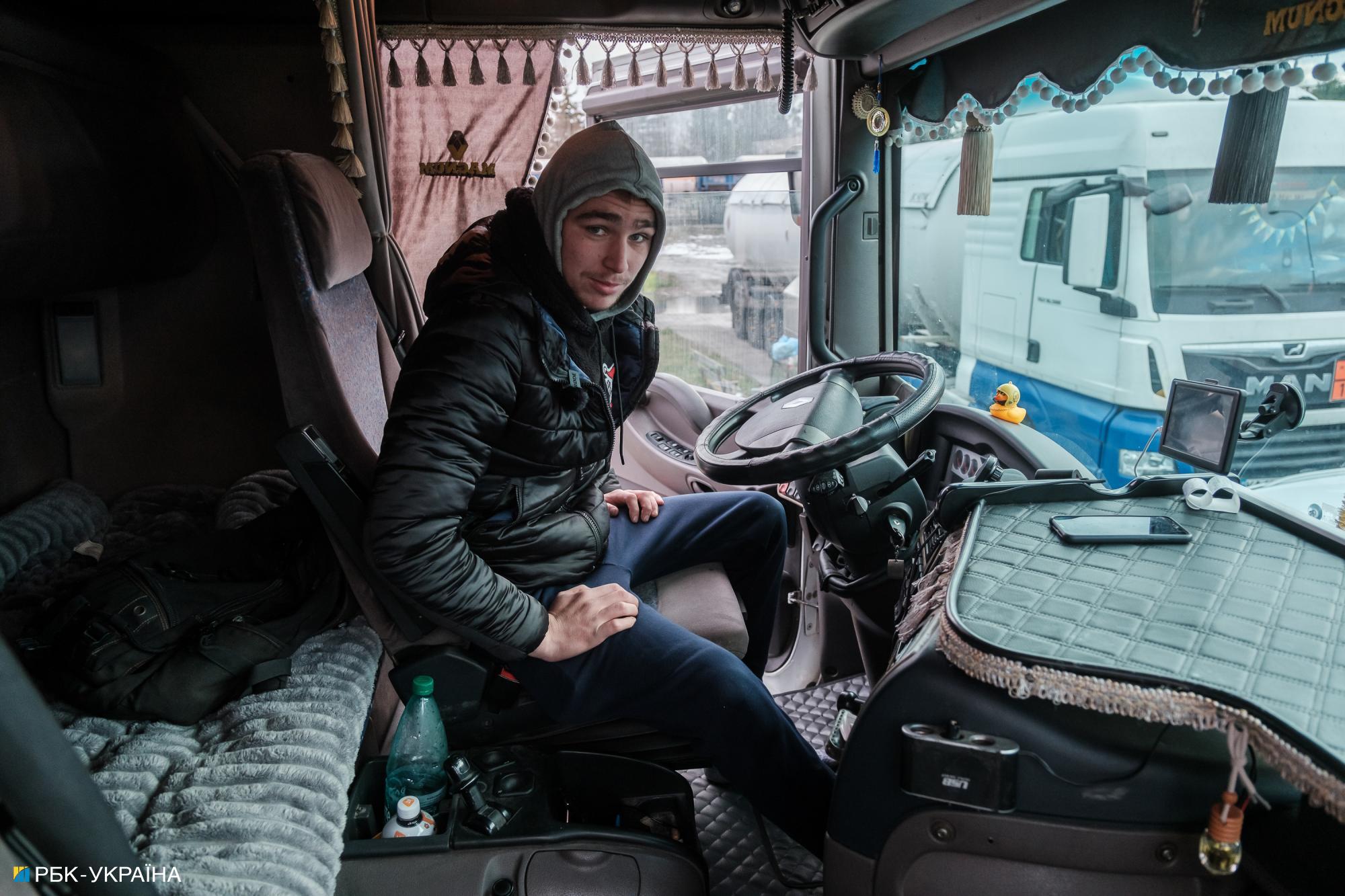
Polish carriers are standing near police cars. Two large trucks are parked nearby, with a banner displaying their demands. The main one is the implementation of a permit system for Ukrainian carriers. We stopped near them, and Oleh Kuts, getting out of the car, asked us not to leave immediately but to wait a bit. "They may not be pleased about the press."
The protesters, about ten people, mostly men and one woman, are surrounded by local journalists. The carriers are not inclined to engage in a severe dialogue; they interrupt Derkach, who is trying to start a conversation, and keeps talking about the introduction of permits. "Without the introduction of permits, the conversation makes no sense!" the man standing to the right of the main negotiator constantly repeats.
"The European Commission is meeting on December 4 and will address the issue of permits. Can you pause the protest and let people through until December 4?" asks Derkach.
"There will be no pause!"
The man responding to Derkach is named Rafał Mekler. He owns a transport company of the same name and also represents the branch of the "Confederation of Freedom and Independence" party, known for its anti-Ukrainian sentiments. The former leader of the party, Janusz Korwin-Mikke, once proposed recognizing the occupation of Crimea and even visited the peninsula in 2015, meeting with the so-called head of Crimea, Sergei Aksyonov. Additionally, since the beginning of the Russian invasion of Ukraine, five Polish transport companies, including Mekler's firm, advocated for the repeal of anti-Russian sanctions.
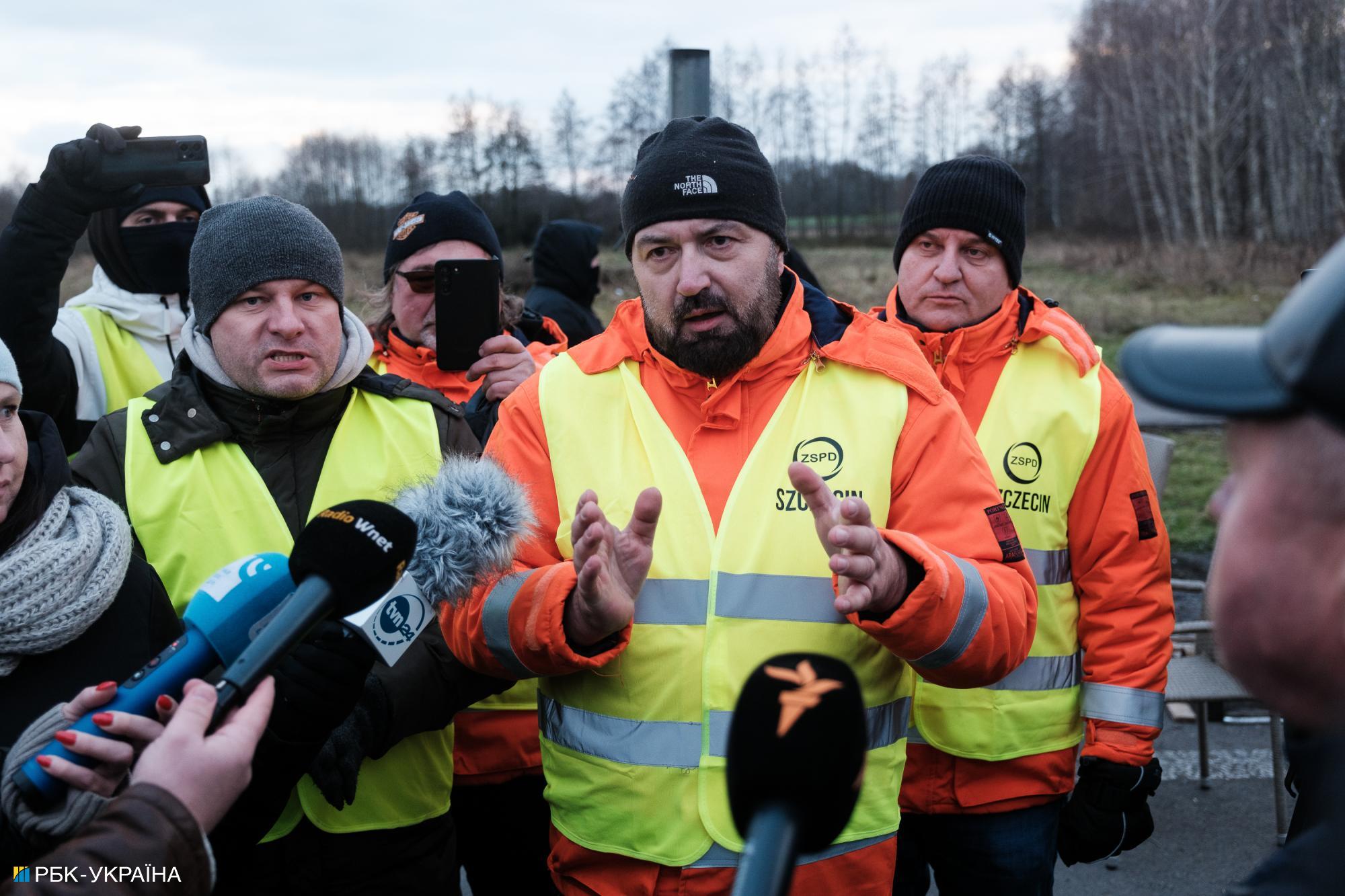
While members of the Ukrainian delegation are talking to the protesters, a group of people in balaclavas surrounds them. They wait for Derkach's replies and interrupt him with shouts. When he asks them not to raise their voices, one of the men shouts, "This is how we talk!"
"You should address your demands to the Polish government. The Polish government can communicate with us as well. I just wanted to ask you about dangerous cargo."
"Humanitarian and military cargo pass without a queue. ADR is in line."
"But you just said that ADR passes without a queue."
The dialogue does not bring any constructive results. The main negotiator, at some point, points to his watch, talks about the pointlessness of the conversation, and walks away. Others follow him. The protesters do not want to discuss the conditions for the passage of a specific type of cargo. They demand the introduction of permits, and they are not interested in Ukraine resolving this.
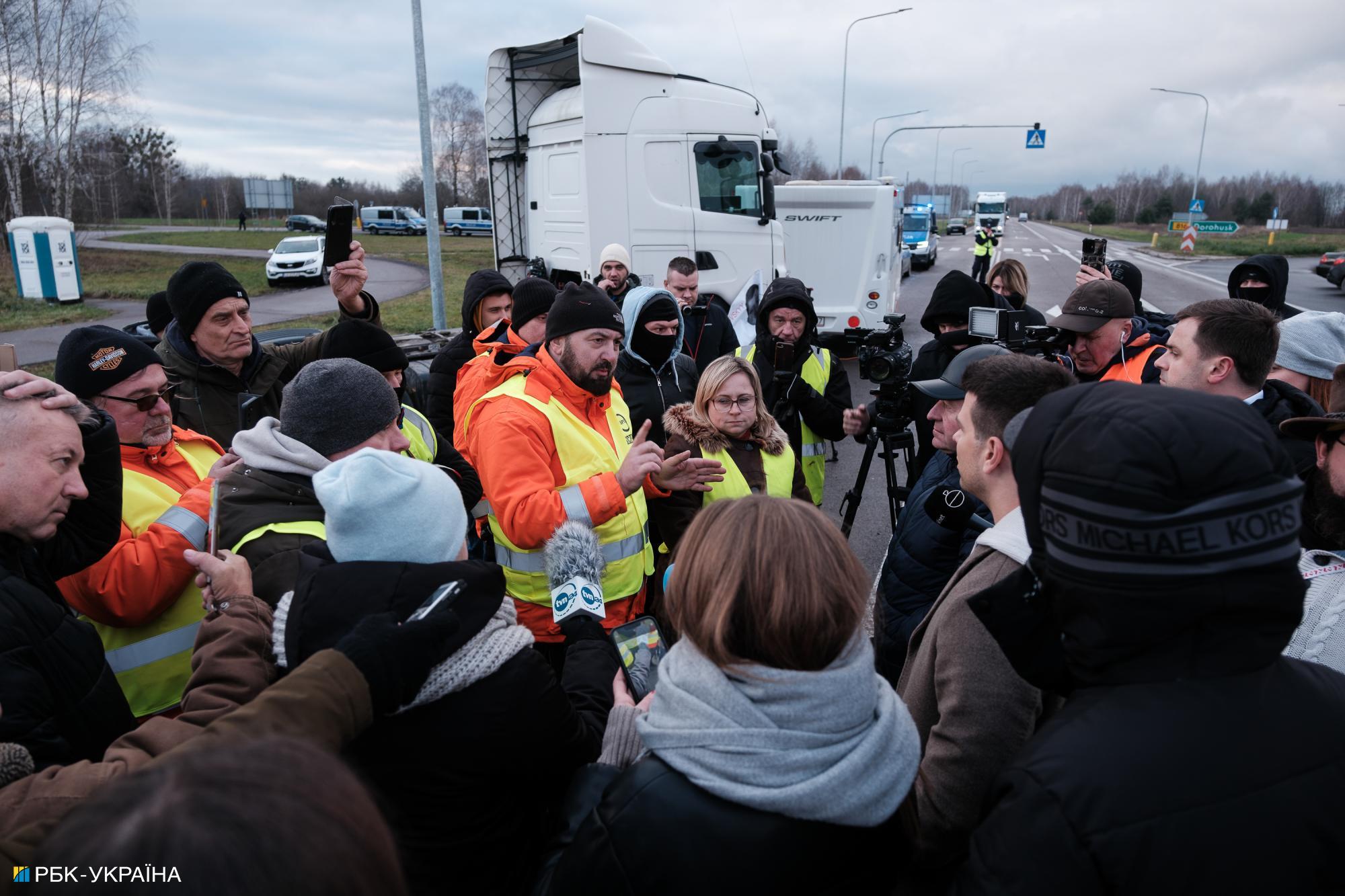
The protesters refuse to communicate with Ukrainian journalists, preferring the local press. We get on the bus and head towards the border. While we were talking to drivers and Polish carriers, about seven trucks were conspicuously let through the border—quite a few compared to previous days.
Members of the Ukrainian delegation joke—perhaps they should come here every day so that the protesters don't provoke incidents and allow trucks to pass as promised—three per hour. Surprisingly, this number has become customary in just three weeks of the protest, which, despite its legal legitimacy, effectively violates the rights of thousands of people.
Losses for the economy and risks of deficit
"Our Polish colleagues from the government say that the protest has the right to be official because it is the legal right of citizens to strike. We respect it, but there have been violations, and these violations are grounds for canceling the strike. We have sent information about these violations to the Polish side and await a response," says Derkach.
The strike of several dozen carriers, which simultaneously represent the political interests of an anti-Ukrainian party, currently has a localized impact on the economy. For example, up to 30% of autogas were imported into Ukraine through the Polish border. Due to its reduction, the gas price rose, but traders found alternative options, says Serhii Kuyun, "Consulting Group A-95."
"In particular, (transportation – ed.) through Slovakia. Therefore, we expect the problem to be resolved within two weeks," Kuyun said in a comment to RBC-Ukraine.
Meanwhile, the Ukrainian economy has already lost about 400 million euros, claims Volodymyr Balin, Vice President of the Association of International Road Carriers. "I am not ready to say how other industries are suffering, although, according to the estimate of the Federation of Employers of Ukraine, our economy has already lost over 400 million euros today. We record the losses of our carriers based on lost profitability - 350 euros for a simple, per day," said Balin.
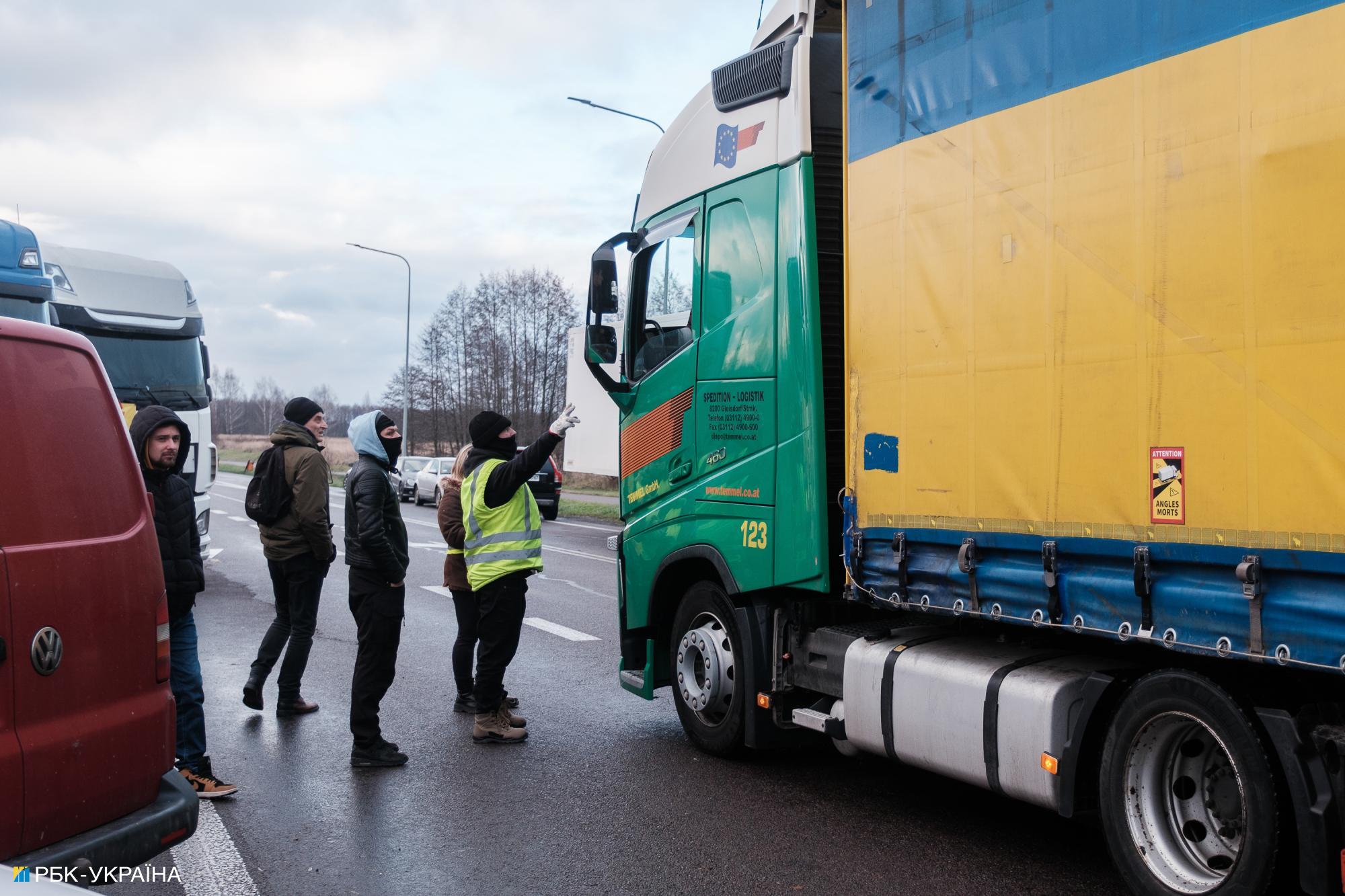
Retailers, however, state that the problem arose with perishable goods and those that require the necessary storage conditions. To avoid an overall shortage, experts are forced to change logistics, says Executive Director of the Ukrainian Food Retail Alliance, Natalia Petrivska.
"To meet the needs of buyers, some goods are redirected through other checkpoints, although logistics has become significantly more expensive, companies incur additional costs and losses. Due to the change in routes, we hope there will be no significant deficit. However, some goods will be unprofitable for import, so companies will consider the feasibility of importing it," Petrivska explains in a comment to RBC-Ukraine.
In addition, on the border with Poland today, there are trucks with energy carriers and humanitarian and military cargo. If the protest continues, Ukraine will potentially lose some Western aid. And the ultimate beneficiary in this case is Russia.
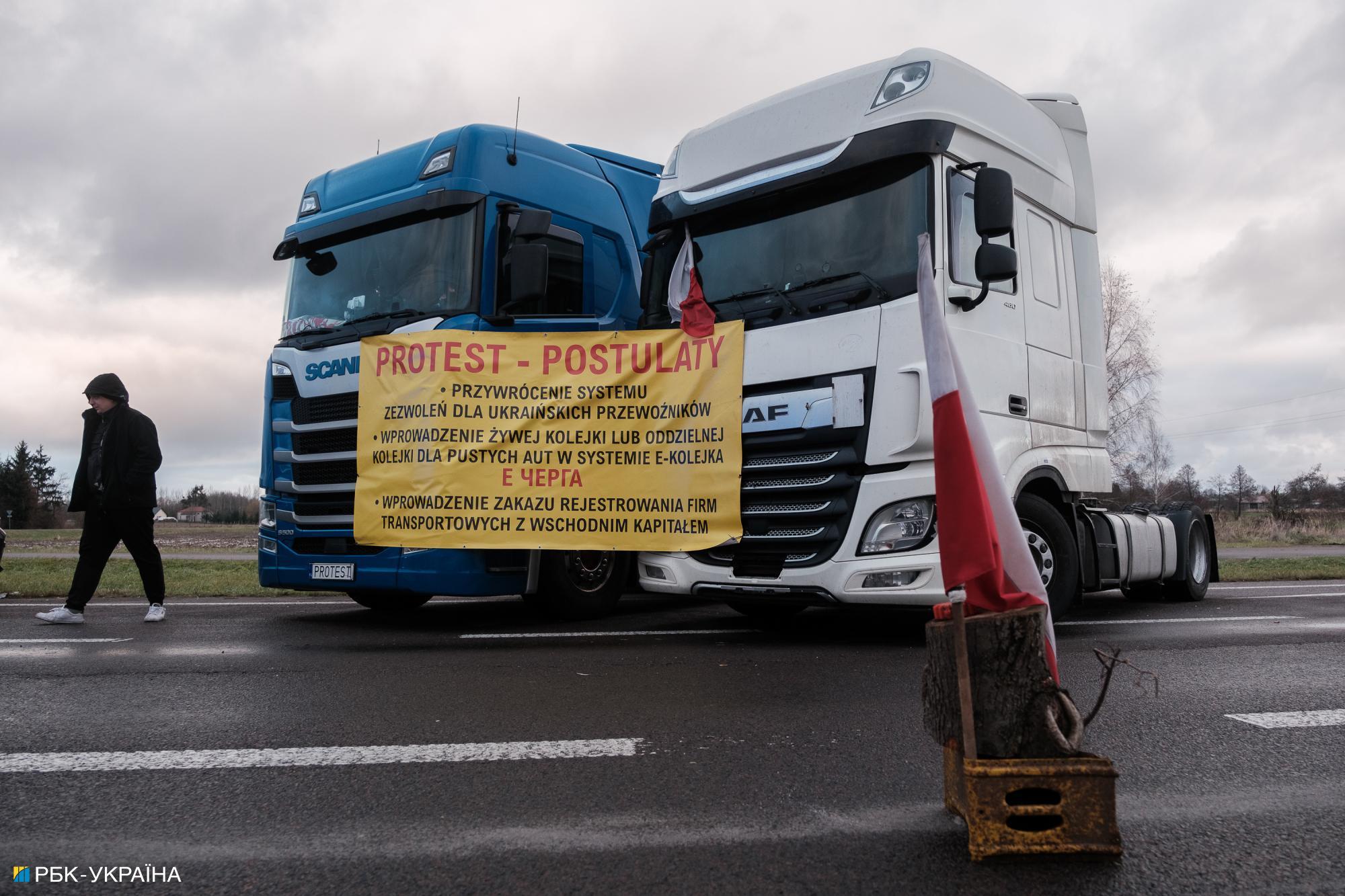
The Polish Confederation of Freedom and Independence is, by and large, a party that advocates Kremlin interests. It cannot be claimed that it harms Poland, but today, it is essential to harm Ukraine primarily, and it uses all its levers. Over decades of "friendship" with the West, enough levers have accumulated in the European space. Today, the Kremlin seeks to destabilize everything it can, and the sooner Europe realizes this and disconnects Russian levers, the less of what is happening today on the Polish-Ukrainian border will occur.

